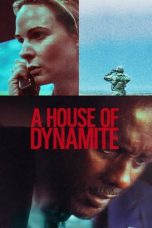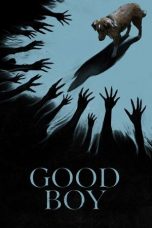Nocturnal Animals (2016) Movie Review: A Haunting Exploration of Regret, Revenge, and Redemption
Nocturnal Animals (2016), directed by Tom Ford, is a dark and visually stunning psychological thriller that intertwines two narratives of love, betrayal, and revenge. Based on Austin Wright’s 1993 novel Tony and Susan, the film is a masterclass in suspenseful storytelling, exploring the haunting consequences of past decisions and the power of art to confront our deepest fears. With its striking cinematography, powerful performances, and intricate narrative, Nocturnal Animals has cemented itself as one of the most compelling films of the decade.
Plot Overview
The film unfolds in two parallel stories. The first story follows Susan Morrow (Amy Adams), a wealthy art gallery owner in Los Angeles, who is trapped in an unfulfilling marriage with her second husband, Hutton (Armie Hammer). One day, Susan receives a manuscript titled Nocturnal Animals from her ex-husband, Edward Sheffield (Jake Gyllenhaal), whom she hasn’t spoken to in years. The manuscript is dedicated to her, and as Susan begins reading it, she is drawn into its dark and violent narrative, which forms the film’s second story.
The manuscript’s story is a gritty, Southern Gothic tale of a man named Tony Hastings (also played by Jake Gyllenhaal), whose road trip with his wife and daughter turns into a nightmare when they are terrorized by a group of violent drifters led by Ray Marcus (Aaron Taylor-Johnson). As the tragic events unfold, Tony teams up with a hardened detective, Bobby Andes (Michael Shannon), to seek justice.
As Susan delves deeper into the novel, she is forced to confront the painful memories of her relationship with Edward and the choices that led to their separation. The manuscript becomes a metaphorical reflection of Susan’s own feelings of guilt, regret, and the emotional wounds she has inflicted on others.
IMDb Rating and Reception
Nocturnal Animals has an IMDb rating of 7.5/10, a reflection of its critical acclaim and audience appreciation. The film premiered at the Venice Film Festival, where it won the Grand Jury Prize, and it went on to receive numerous accolades, including an Academy Award nomination for Michael Shannon’s performance. Critics praised the film for its gripping narrative, visual style, and the depth of its emotional impact, though some viewers found its dark themes and ambiguous ending unsettling.
Cast and Performances
The cast of Nocturnal Animals delivers outstanding performances, each actor bringing depth and intensity to their roles. Amy Adams excels as Susan Morrow, portraying a woman whose polished exterior conceals a profound sense of emptiness and regret. Adams captures Susan’s inner turmoil with subtlety, making her character’s emotional journey both compelling and relatable.
Jake Gyllenhaal shines in his dual roles as Edward and Tony, bringing vulnerability and raw emotion to both characters. As Edward, Gyllenhaal embodies the heartbroken writer channeling his pain into his work, while as Tony, he portrays a man grappling with overwhelming grief and a desire for revenge. His performance adds layers of complexity to the film, blurring the lines between fiction and reality.
Michael Shannon is a standout as Detective Bobby Andes, delivering a performance that is both gritty and charismatic. Shannon’s portrayal of Andes, a man driven by a personal code of justice, provides the film with some of its most intense and memorable moments. Aaron Taylor-Johnson, who won a Golden Globe for his role, is terrifying as Ray Marcus, the embodiment of chaotic evil who brings Tony’s worst fears to life.
Themes and Analysis
Nocturnal Animals is a film rich in themes, exploring the destructive power of regret, the search for redemption, and the devastating effects of betrayal. At its core, the movie is a meditation on the consequences of our choices and how they shape our lives. Susan’s story is one of profound regret—her decision to leave Edward for a life of material comfort haunts her, and the manuscript serves as a cruel reminder of what she has lost.
The manuscript’s story, with its themes of vengeance and justice, acts as a metaphor for Edward’s own pain and the revenge he seeks through his art. The violent and tragic events in Tony’s story can be seen as a reflection of Edward’s emotional state, and his desire to make Susan feel the same hurt he experienced. The film’s title, Nocturnal Animals, refers to those who are haunted by their past actions, unable to find peace.
The film also examines the intersection of art and life, questioning the ways in which art can be used to express, process, and even weaponize personal trauma. Edward’s novel is not just a work of fiction—it’s a deeply personal and symbolic retelling of his relationship with Susan, filled with anger, sorrow, and unresolved feelings. The novel’s dark narrative forces Susan to confront the person she has become, leading to an intense emotional reckoning.
Direction and Visual Style
Tom Ford, known for his background in fashion, brings a distinctive visual style to Nocturnal Animals. The film is meticulously crafted, with every shot exuding a sense of elegance and precision. The contrasting worlds of Susan’s sleek, modern life in Los Angeles and the gritty, desolate landscape of the novel’s West Texas setting are visually striking, enhancing the film’s themes of duality and inner conflict.
Ford’s use of symbolism and visual metaphors adds depth to the narrative, making Nocturnal Animals a film that invites multiple viewings to fully appreciate its complexities. The opening sequence, featuring a provocative art installation at Susan’s gallery, sets the tone for the film’s exploration of superficiality and hidden truths. Throughout the movie, Ford uses lighting, color, and composition to mirror the characters’ emotional states, creating a visually rich and thematically resonant experience.
The film’s score, composed by Abel Korzeniowski, further amplifies the tension and emotional weight of the story. The haunting, melodic music underscores the film’s mood, enhancing the sense of unease and impending doom that pervades both narratives.
Cultural Impact and Legacy
Nocturnal Animals has made a significant impact on contemporary cinema, particularly in its exploration of the relationship between art and personal trauma. The film’s narrative structure, with its interplay between reality and fiction, has been praised for its originality and complexity. It has inspired discussions about the nature of revenge, the consequences of emotional cruelty, and the ways in which art can reflect and distort our inner lives.
The film’s ambiguous ending, which leaves Susan’s fate open to interpretation, has sparked debate among audiences and critics alike. This ambiguity, combined with the film’s rich symbolism and multi-layered storytelling, ensures that Nocturnal Animals remains a subject of analysis and discussion long after the credits roll.
Streaming Availability in the U.S.
As of 2024, Nocturnal Animals is available for streaming on platforms such as Netflix and HBO Max. It can also be rented or purchased on digital services like Amazon Prime Video, Apple TV, Google Play, and Vudu, making it accessible to viewers interested in exploring its haunting narrative and visual style.
Conclusion
Nocturnal Animals is a masterful exploration of the darker aspects of human emotion, blending psychological thriller elements with a poignant drama about love, loss, and the quest for redemption. With its powerful performances, stunning visual style, and intricate narrative, the film stands out as one of the most thought-provoking and visually arresting films of recent years.
For those who appreciate films that challenge the viewer both emotionally and intellectually, Nocturnal Animals is a must-watch. Its availability on streaming platforms like Netflix and HBO Max ensures that this haunting and beautifully crafted film continues to reach new audiences, offering a cinematic experience that lingers long after the final scene.
















